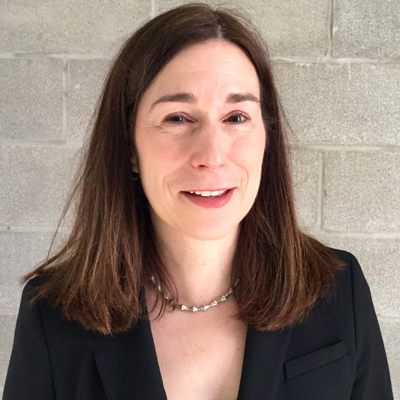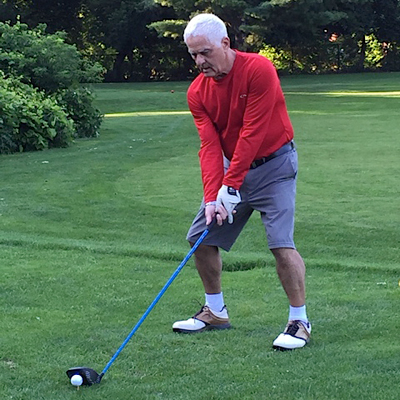
Dr. Lianne Singer, Medical Director, Toronto Lung Transplant Program at Toronto General Hospital. (Photo: Dr. Singer)
Long-term follow-up of lung transplant recipients shows that older people experience quality of life benefits as large as those younger in age, regardless of underlying diagnosis.
In a first of its kind, comprehensive analysis of health-related quality of life and survival of lung transplant patients, Dr. Lianne Singer, Medical Director of the Toronto Lung Transplant Program at Toronto General Hospital, University Health Network (UHN), and authors found that lung transplantation dramatically increases the quality of life for patients of all ages, with some variation by diagnosis. This physical and mental well-being of recipients lasts up to five years after transplant, even for patients 60 years and older.
The study entitled, "Effects of Recipient Age and Diagnosis on Health-Related Quality of Life Benefit of Lung Transplantation," was published online July 1, 2015 in the
American Journal of Respiratory and Critical Care Medicine. The study was funded by the Canadian Institutes of Health Research, Physicians' Services Inc. Foundation, and the Ontario Lung Association - Pfizer Canada.
Using five different quality-of-life instruments, the study looked at 326 patients, before and after their lung transplants, following them for five years. More than 100 of these patients were 60 years of age or older. Different aspects of quality of life were studied, including: respiratory symptoms, such as cough or shortness of breath, general physical and psychological functioning such as physical activity and energy levels, as well as mood, anxiety and feelings about one's health.
Average quality of life of all participants increased significantly after transplantation on all five instruments. Older and younger patients had similar improvements in quality of life with transplantation and rates of decline in quality of life over the first five years after transplant, supporting the benefit of transplantation in older patients. At Toronto General Hospital, the lung transplant program's oldest patient was 77 years old when transplanted in 2010, and is now 82, in good health.
Cystic fibrosis patients benefited the most from transplant, although differences in quality of life according to diagnosis were small.
"As a program, we decided not to exclude patients on the basis of age," says Dr Singer, who is the lead author of the study. "We did not want to deny anyone this opportunity based on age, if their health was good enough to receive a transplant."
Dr. Singer also pointed out that TGH has a unique rehabilitation component to the transplant program, requiring patients to adhere to an exercise program three times per week as soon as they are put on a waiting list and continuing until at least three months after their transplant.
"Our transplant program has the expertise to take on some higher-risk patients, who are older or have multiple health challenges," explains Dr. Shaf Keshavjee, Director, Toronto Lung Transplant Program and Surgeon-in-Chief of University Health Network, and one of the authors of the study. "Our team can help these patients pull through a crisis, stabilize, go through a transplant, and survive afterwards. Our patients begin their rehab while still in the ICU and they do very well afterwards."

Al Winter, 74, received a single-lung transplant when he was 68 years old in 2009. He remains active by cycling, walking, playing golf and with his two lively grandkids.
(Photo: Al Winter)
Al Winter, 74, received a single-lung transplant when he was 68 years old. About four months after Al's diagnosis of idiopathic pulmonary fibrosis, which scarred and thickened lung tissue prevented him from breathing properly, his oxygen dropped to such a low level that he required oxygen day and night. He even had his bicycle fitted with an oxygen tank and carried one on the golf course so he could continue to be active.
When he was told he needed a lung transplant, Al decided to get a second opinion at the renowned Cleveland Clinic. They confirmed the diagnosis and his need for a transplant. They also told Al that the lung transplant program at Toronto General Hospital was one of the best in the world, with excellent outcomes, and he would receive good care there. The program performs more than 100 lung transplants per year, with excellent results and close-follow-up before and after transplant, making it one of the largest programs in the world.
Al received his transplant at Toronto General Hospital on Sept. 19, 2009. Now he can play with his two grandkids, take brisk walks, spinning classes, cycle and play golf without getting breathless.
"That transplant gave me a new outlook on life," he says. "I went in fighting, strong. I was going to take this head on, meeting the transplant team half-way. I have a positive attitude. That really helps in meeting any challenges after transplantation."
